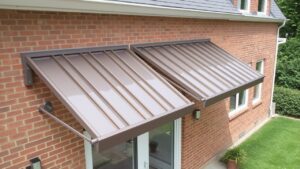The Benefits and Uses of Hollow Blocks in Modern Construction

Hollow blocks and concrete solid blocks have become essential materials in the construction industry, offering versatility, durability, and cost-effectiveness. While hollow block are known for their lightweight and insulation properties, concrete solid blocks excel in providing high strength and load-bearing capacity. Both materials serve distinct purposes, making them indispensable for various applications.
What Are Hollow Blocks and Concrete Solid Blocks?
Hollow blocks, often referred to as concrete masonry units (CMUs), are rectangular blocks with one or more hollow cavities inside. These blocks are typically manufactured using a mix of cement, sand, aggregate, and water. The hollow core significantly reduces the weight of the blocks while maintaining their strength and structural integrity.
In contrast, concrete solid blocks are fully solid without cavities. Made from a dense mix of cement, sand, and aggregates, these blocks are heavier and offer exceptional durability and load-bearing capabilities. They are often used for foundations, retaining walls, and other structures requiring high strength.
Types of Hollow and Concrete Solid Blocks
- Concrete Hollow Blocks (CHB): Made from cement, sand, and aggregates, these are the most common type. They are widely used for walls and foundations.
- Lightweight Hollow Blocks: Manufactured with lightweight aggregates like expanded clay or pumice, these blocks are easier to handle and reduce the dead load of the structure.
- Aerated Concrete Blocks: These blocks offer excellent thermal insulation due to small air pockets formed during the manufacturing process.
- Concrete Solid Blocks: These blocks are heavier and denser, providing superior strength for load-bearing walls and other high-stress applications.
Advantages of Using Hollow Blocks and Concrete Solid Blocks
Advantages of Hollow Blocks
- Lightweight and Easy to Handle
Hollow blocks are lighter than traditional bricks, making them easier to transport and install, reducing labor costs. - Thermal and Sound Insulation
The hollow cavities provide excellent insulation, making them ideal for residential and commercial buildings. - Eco-Friendly
Hollow blocks are often made from recycled materials, reducing their environmental impact.
Advantages of Concrete Solid Blocks
- Exceptional Strength and Durability
Concrete solid blocks are highly durable and can withstand heavy loads, making them perfect for foundations and structural elements. - Fire and Weather Resistance
Solid blocks offer excellent resistance to fire and harsh weather conditions, ensuring the longevity of structures. - Versatile Applications
They are suitable for both load-bearing and non-load-bearing walls, retaining walls, and even road construction.
Common Applications of Hollow Blocks and Concrete Solid Blocks
Hollow Blocks
- Walls and Partitions
Hollow blocks are widely used in constructing walls for residential and commercial buildings due to their lightweight nature. - Boundary Walls and Fences
The cost-effectiveness of hollow blocks makes them an excellent choice for boundary walls. - Architectural Features
Hollow blocks can be used to create decorative perforations for ventilation or aesthetic appeal.
Concrete Solid Blocks
- Foundations and Retaining Walls
Concrete solid blocks are ideal for applications that require high load-bearing capacity. - Pavements and Road Construction
Their strength and durability make solid blocks suitable for roads, pavements, and other infrastructure projects. - Industrial Structures
Solid blocks are commonly used in warehouses, factories, and other heavy-duty structures.
Tips for Working with Hollow Blocks and Concrete Solid Blocks
- Choose the Right Type for the Job
For lightweight construction and insulation, use hollow blocks. For high-strength requirements, opt for concrete solid blocks. - Ensure Proper Alignment
Use tools like a level and string line to maintain even alignment during installation. - Reinforce Where Necessary
For both hollow and solid blocks, reinforcement with steel bars can enhance structural strength. - Plan Openings in Advance
Pre-plan door, window, and other openings to avoid modifications during construction.
Conclusion
Hollow blocks and concrete solid block each offer unique benefits, making them vital in modern construction. Hollow blocks excel in providing lightweight and insulated solutions, while concrete solid blocks shine in projects requiring exceptional strength and durability. By understanding the applications and advantages of these materials, builders can make informed decisions to optimize their projects.
Whether you’re constructing residential walls, commercial foundations, or industrial facilities, integrating hollow blocks and concrete solid blocks ensures that your structures are durable, cost-effective, and sustainable.







